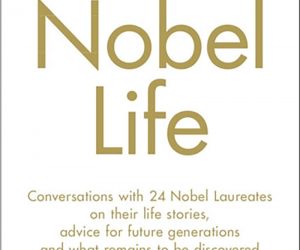 Doris May Lessing was the oldest person to receive the Nobel Peace Prize in Literature. At age 88 Lessing was the oldest Nobel Laureate and only the eleventh woman to be awarded the Nobel Peace Prize for Literature in the Swedish Academy’s 106 year history.
Doris May Lessing was the oldest person to receive the Nobel Peace Prize in Literature. At age 88 Lessing was the oldest Nobel Laureate and only the eleventh woman to be awarded the Nobel Peace Prize for Literature in the Swedish Academy’s 106 year history.
Doris May Lessing was born in Iran on October 22, 1919, where she lived until 1925. Her British born parents moved the family to Zimbabwe and purchased 1000 acres of bush, spending the next few years farming, mostly maize, before moving the family to London, England. Lessing left school at the age of 13 and was self-educated until leaving home and working as a nursemaid at age 15. At this time she also began selling short stories to magazines.
During Lessing’s lifetime she published more than 50 novels. Her most significant work was ‘The Golden Notebook” published in 1962. Lessing wrote two novels under a pseudonym, with the intention of proving how difficult it was for a new author to get published. These novels were initially rejected by Lessing’s UK publisher but later accepted by a US publisher.
In 1937 Lessing married her first husband and had two children; however the marriage ended in 1940. Lessing moved out of the family home, leaving the children with their father. A few years later Lessing made the following statement about leaving her children:
“For a long time I felt I had done a very brave thing. There is nothing more boring for an intelligent woman than to spend endless amounts of time with small children. I felt I wasn’t the best person to bring them up. I would have ended up an alcoholic or a frustrated intellectual like my mother.”
Her second marriage was also brief, and produced one son. Lessing did not marry again, but had a brief love affair with RAF serviceman John Whitehorse.
Lessing campaigned against nuclear arms and was an active opponent of apartheid, leading to her being banned from South Africa and Rhodesia (Zimbabwe) for many years. She had been a member of the communist party, but following the Soviet invasion of Hungary, she left the party. During a 1980’s interview with The New York Times Lessing voiced her resistance to Soviet action in Afghanistan. Lessing was outspoken in her views on feminism, communism, and science fiction. In 2015 it became public that British intelligence agencies had Lessing under surveillance for at least 20 years, due to her associations with communism and anti-racist activism. A five-volume secret file on Lessing was made public and placed in the National Archives.
Doris May Lessing’s literary career was far-reaching and controversial. Her book “The Golden Notebook” as described in The Guardian.com/books
“Lessing’s radical exploration of communism, female liberation, motherhood and mental breakdown was hailed as the ‘feminist bible’ and reviled as ‘castrating’.”
A few of the many awards Lessing received throughout her life include the Somerset Maugham Award, 1954, Australian State Prize for European Literature 1981, Palermo Prize 1987, James Tait Black Memorial Prize for biography 1995, David Cohen Prize 2001, Nobel Prize in Literature 2007 and the Order of Mapungubwe: category II Gold 2008. These awards came from Doris Lessing’s many books.
She died on November 17, 2013 at the age of 94, following complications from a stroke. She was predeceased by both of her sons and survived by her daughter, who lives in South Africa.


